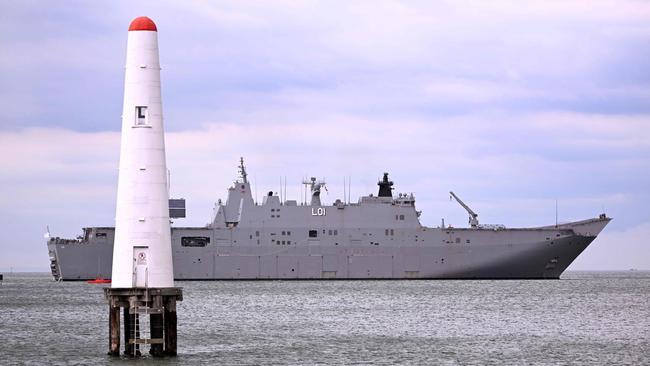
As the defence industry digests the news about the departure of Hanwha Australia’s head of defence last week, there’s still plenty scratching their heads over the government’s decision to pave the way for the Korean firm to buy Austal.
Hanwha Australia defence head Richard Cho stepped down in recent days, sparking plenty of chatter as to why. But the more pressing matter for deal makers is whether Hanwha will return for another crack at Austal, backed by billionaire Andrew Forrest, as its shares closed up almost 6 per cent on Monday.
Hanwha’s first $1bn bid was rejected after Austal directors took the view that the deal would not gain clearance from the Foreign Investment Review Board. Sources close to Austal suggested it had sought advice from FIRB, but regardless the offer needed to be higher from a financial perspective.
However, Defence Minister Richard Marles has since said the government would not stand in the way of an acquisition.
Hanwha already carries out other defence contracts for the government, including two multibillion-dollar programs for the Australian Army in the Huntsman self-propelled howitzer and the Redback Infantry Fighting Vehicle.
However, some were not only surprised by Marles’ comments on the grounds that Austal is one of only two Australian ship builders capable of building war ships for the government, and that Hanwha’s 36 per cent shareholder and former chair Kim Seung-youn spent time in jail for fraud, according to overseas reports.
Also facing fraud allegations in the past was the former boss of Daewoo Marine, which was purchased by Hanwha last year and renamed Hanwha Ocean.
Some also view the decision as one that flies in the face of the government’s Modern Manufacturing Strategy, which aims to help Australian manufacturers scale-up, compete internationally and create jobs.
Perhaps one outcome could be that the government has had a change of heart when it comes to granting Hanwha the blessing to buy the business.
The concern for some is that warships have sensitive combat systems and technology.
There’s also concern about sensitive intelligence falling into the hands of North Korea.
And while Korea would likely agreed to keep the manufacturing local, there’s also a concern that this could eventually be taken back closer to its home soil over time.
And then there’s how Tattarang, the 20 per cent shareholder and company of Mr Forrest plays its hand.
Tattarang has so far declined to comment on Hanwha’s bid.




To join the conversation, please log in. Don't have an account? Register
Join the conversation, you are commenting as Logout